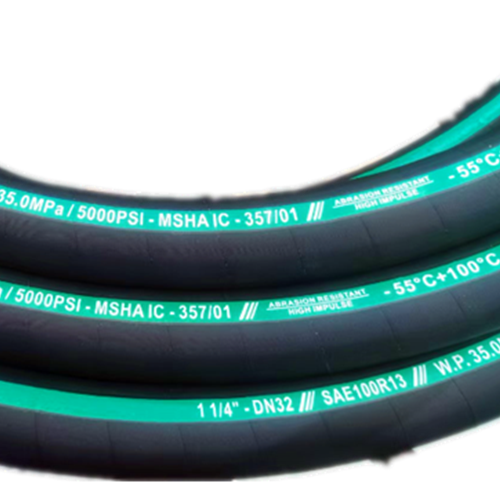335345435
Sep . 12, 2024 20:38 Back to list
natural gas hose
The Importance of Natural Gas Hose Systems
Natural gas is a vital energy resource that powers homes, businesses, and industries across the globe. Its efficient and clean-burning properties make it a preferred choice for heating, cooking, and electricity generation. However, transporting natural gas safely and effectively requires specialized equipment, and one of the most critical components in this process is the natural gas hose.
Natural gas hoses serve as essential conduits for the transportation of gas from one point to another, ensuring safety and efficiency. These hoses are specifically designed to withstand the pressure and corrosive properties of natural gas, preventing leaks which can lead to hazardous situations. Made from durable materials such as rubber, thermoplastic elastomers, or composite materials, natural gas hoses are engineered to meet stringent industry standards.
One of the key features of natural gas hoses is their pressure rating. Depending on the application, hoses can be rated for low, medium, or high pressure. Low-pressure hoses are typically used in residential applications, such as flex lines connecting stoves or water heaters to gas supplies. Medium-pressure hoses are often employed in commercial settings, while high-pressure hoses are designed for industrial uses where the gas is transported over longer distances.
natural gas hose

Another crucial aspect of natural gas hoses is flexibility. They must be capable of bending and maneuvering around obstacles without losing their integrity or function. This flexibility not only facilitates easier installation but also secures connections in various operational environments, whether indoors or outdoors.
Safety is paramount in the natural gas industry, and proper installation and maintenance of natural gas hoses cannot be overstated. Hoses should be regularly inspected for signs of wear, such as cracks, abrasions, or any signs of gas leakage. Additionally, connections must be tightly secured to prevent any risk of disconnection during operation.
The environment in which the natural gas hose operates also influences its selection. Hoses that will be exposed to extreme temperatures, chemicals, or heavy-duty wear require specific materials and construction methods to ensure longevity and reliability. For instance, hoses used in high-temperature environments must be made with materials that will not degrade under heat stress.
In conclusion, natural gas hoses are integral to the safe and efficient transportation of natural gas in various applications. Understanding their features, including pressure ratings, flexibility, and material composition, is essential for ensuring safety and reliability. With continued advancements in technology and materials, the future of natural gas hoses looks promising, further enhancing the efficiency of this essential energy resource. As industries continue to evolve, so too will the demand for resilient and effective natural gas hose systems, guaranteeing the secure delivery of energy where it is needed most.
-
High-Precision Hydraulic Hose Crimping Machine for Fast, Reliable Fittings
NewsJul.24,2025
-
High-Quality Distribution PTFE Hose for Industrial Flexibility
NewsJul.23,2025
-
Durable Pressure Washer Rubber Hose for Hot Water & High Flexibility
NewsJul.22,2025
-
Twin Hydraulic Hose for Efficient Fluid Transfer | Durable & Flexible
NewsJul.22,2025
-
Twin Hydraulic Hose | High Pressure & Durable
NewsJul.21,2025
-
Discount Hydraulic Hose Factories | Top Quality & Discounts
NewsJul.20,2025



